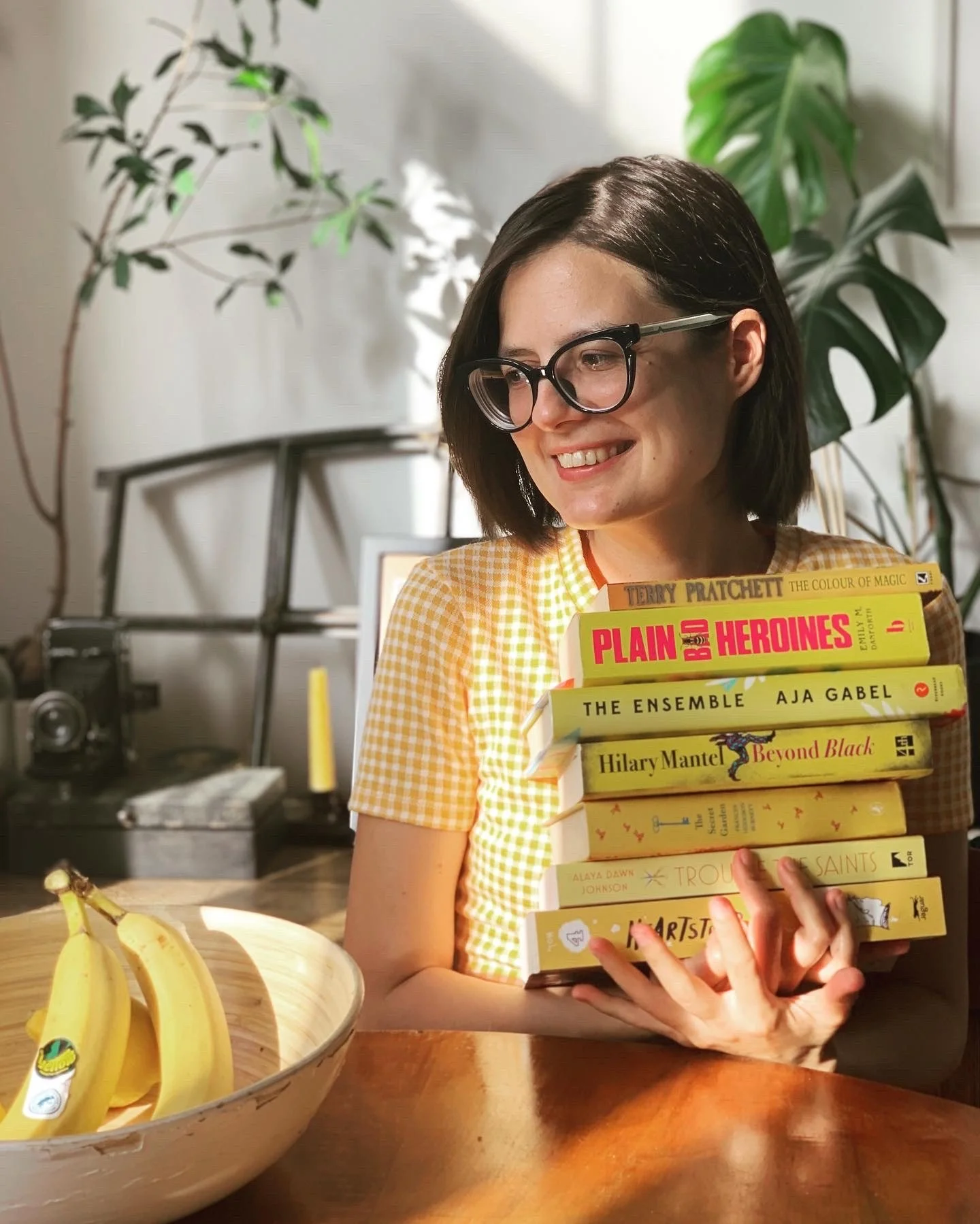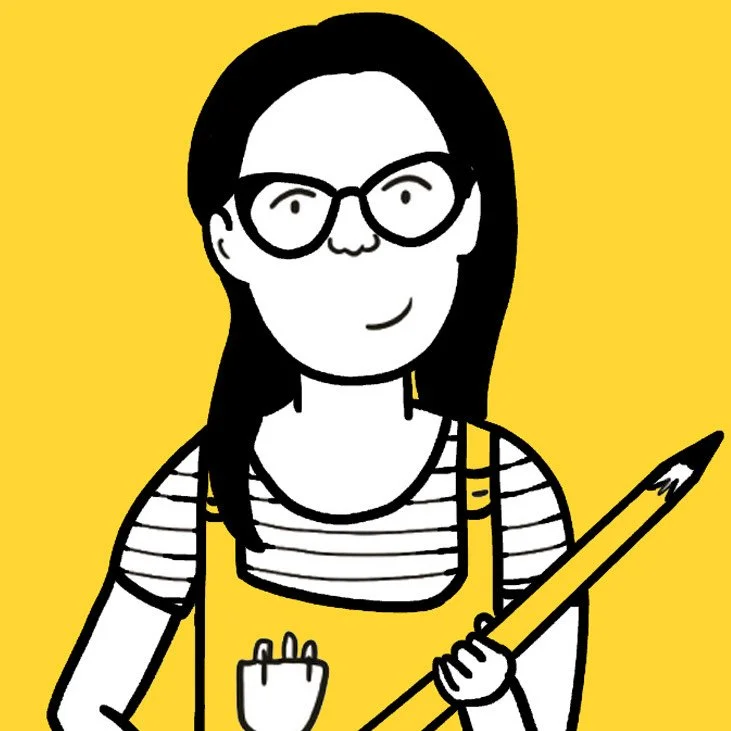The World of Translation: A Q&A with Team Tandem member, Zuzanna!
In honour of Women in Translation month, we sat down with our very own Zuzanna (@themanuscriptmechanic) to find out more about her experience working in translation, her thoughts on reading across different languages, and some recommendations of books written by women that she has read in translation!
Q: Hi Zuzanna! Could you start by telling us about your experience in book translation?
A: "I've worked as an editorial assistant in two French publishing houses, as a literary agent handling translation rights on behalf of major publishers and literary agencies, as a freelance translator and, since March of this year, I have my own creative writing business called The Manuscript Mechanic, sharing the knowledge I acquired through my years in the business. I also speak five languages - English, French, Polish, Italian and Russian."
Q: Where did your love for learning, and reading in, different languages come from?
A: It happened organically, I think - I was 6 months old when my family left Poland where I was born, and moved to France, then we moved to England when I was 5 years old. So, by default, having changed schools from country to country, I was speaking three languages by the time I was 5. It all snowballed from there!
Q: From your experience as a translator, what were the main joys and challenges of translating a piece of writing?
A: For sure, the main joy is making a piece of writing accessible to people in other countries, who would never get a chance to enjoy a story if it wasn't translated into their language. As to the main challenge... it's funny, and this may be a bit controversial now - because I've worked with translation so much, and I'm such a big believer in translated fiction, and yet I myself, wherever I can read it in the original, I prefer not to read the translated version, because I know it won't be exactly the same. A translator always brings something of themselves into the work, and of course I think they're right to do so. You need some literary freedom to render the emotions of the original accurately, but it can't be verbatim, otherwise it won't be readable - each language has its own constructions, its own words for different concepts, phrases that have evolved organically and are determined by the society the language is used in. Those can be impossible to render in another language. But this means you'll never get the exact sense of what the original author meant when the words were flowing out of them - you're getting the translator's interpretation. And that's going to be the biggest challenge - hitting the balance between staying true to the original, and making it a good read at the same time. That's why it's so important for books to be translated by not just linguistic experts, but people with writing skills of their own.
Q: Although you like to read books in the original language where you can (with one of your many languages!), what is your favourite thing about reading a piece of translated fiction?
A: Ah yes, so let me start with what I said above, that I don't like reading a translated book, when it's translated from a language I speak. It's not just about wanting to read what the author originally intended, it's also because instead of focusing on the story, my mind is searching for what the text could have said in the original. Why did the translator pick this word? Does this mean the original was this, or this? I don't get absorbed in the story, so it's more of a language exercise.
I love reading in translation if it's a language I don't speak, then it's a privilege to have access to it. My favourite thing is when it reads like it isn't translated - when the translator has injected their own literary interpretation, so it's a novel in its own right.
Q: Do you have a favourite language to read in overall, and if so why?
A: English, I'm afraid. It's the one I grew up reading in the most for pleasure, I grew up in London so Waterstones was just around the corner, an endless supply of my favourite drug - stories! - it's the one where I forget I'm reading, and I just sink into the story. French would be a close second, and Polish, then Italian. Russian is my weakest language out of the five, I've been learning in for the past four years and I read much slower in Russian, so it's not as fun.
Q: Do you have any tips for people who want to work in translation or translation rights?
A: My advice would be - have an adventure, go live in the country where they speak the language you want to translate from, the countries that interest you. It's the best way to give yourself a crash course not just in the language, but in its cultural references, its local context. It looks really great on a CV, as well. I know some people may not have the possibility to travel, but nowadays I think it's become so much more accessible, with remote work options, cheaper living costs abroad, etc. I myself have lived much more frugally when I was living abroad, or travelling, than when I'm settled in one place. The idea may seem scary at first, but once you take that leap, it expands your mind like nothing else.
If that's not an option for you, and you're learning a language, wanting to punch up your skills - watch shows on Netflix in the original language you're learning, with the English subtitles on. You'll be surprised by how quickly you pick words, and how good it'll be for your accent, to spend hours listening to people talking in that language! There's a huge selection of shows on there in a whole variety of languages, and it's such an easy way to improve by osmosis.
Q: Do you have any recommendations for people wanting to get into reading more translated fiction?
A: My advice would be - don't go out looking specifically for translated fiction, but come at it from another way. Think of your favourite genre, whether it's fantasy, historical fiction, or memoirs, and do a quick search online for what books in translation are available in that genre. You might discover a whole new fresh approach to your favourite type of story, while staying in the genre you love most.
Q: Do you have any favourite women authors who you've read in translation?
A: Hm, there's so many, let me try and think outside the box here for some recommendations that may not pop up on your feeds...
Oh, one of my favourite thrillers I read in the last few years, hands down, is This Little Family by Ines Bayard. It's in French originally, but I was actually gifted a copy of this in English as I was about to get on a train, and I read it all on that one train journey. It's gruesome, devastating - as a warning, it opens with a very graphic scene of sexual assault - but it's such a good story.
I also loved Crimson by Niviaq Korneliussen, it's a queer novel by a Greenlandic author, about four young queers trying to sort out their lives, it's quite short but it's full of existential angst, I loved it.
And then one more - The Disaster Tourist by Yun Ko-eun, this is another short read but it's so so good, about a manager at a company that specialises in holiday packages in disaster zones, it's sometimes funny sometimes scary, and it's a bit like a cautionary fable about climate change and capitalism.
Head over to @tandemcollectiveglobal to see the accompanying social post carousel for this interview, and be sure to follow Zuzanna @themanuscriptmechanic to stay up to date with her new business!


